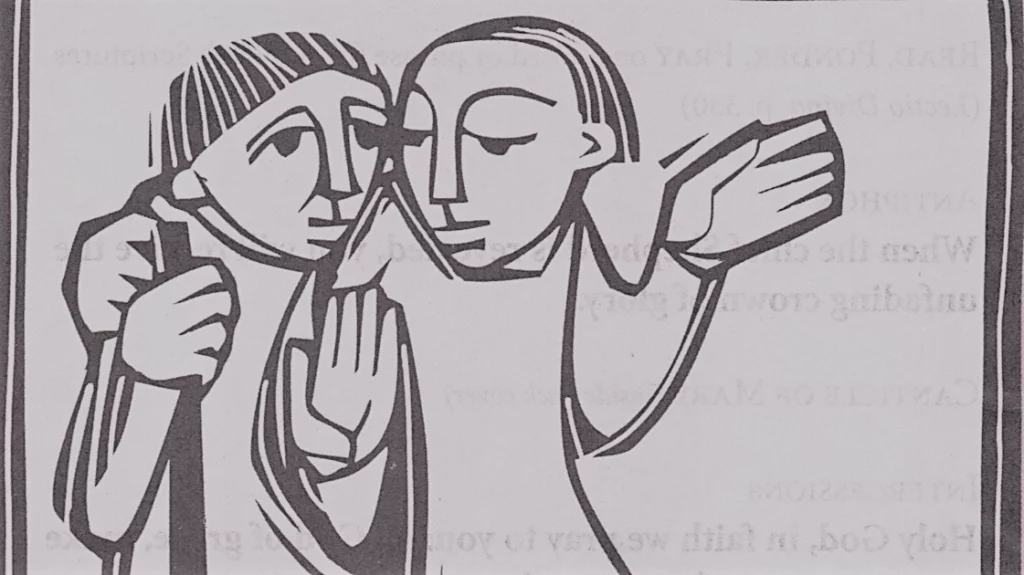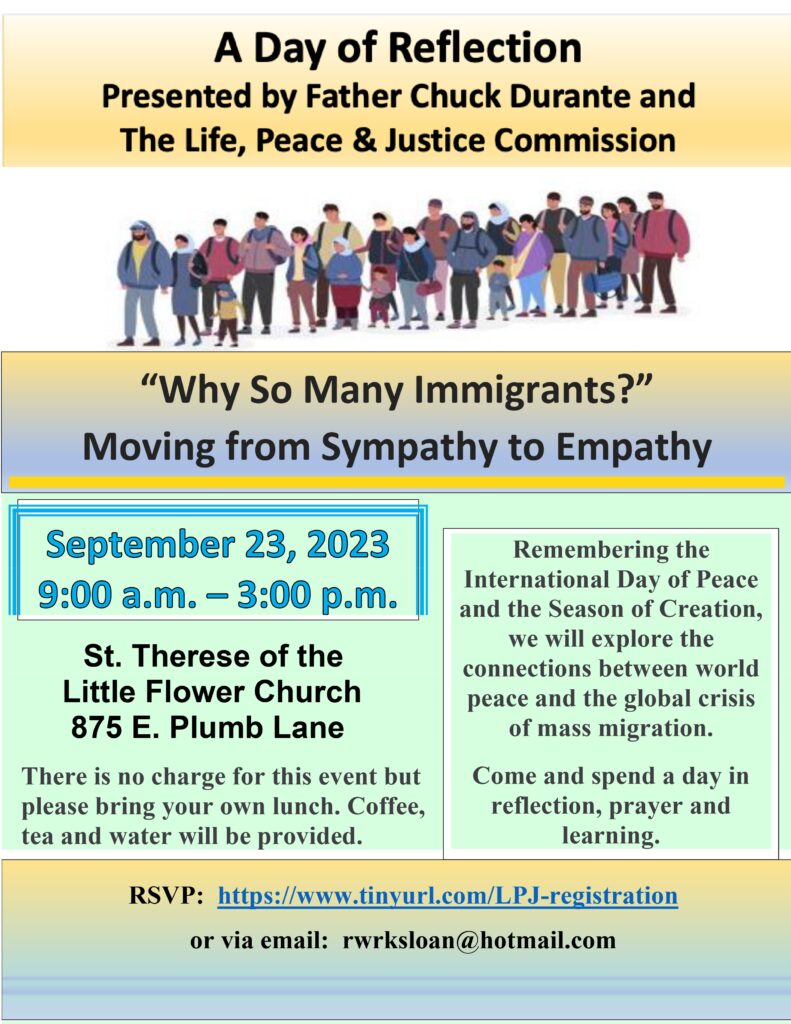LIFE PEACE AND JUSTICE COMMISSION
Who are we?
The Life Peace & Justice Commission, which formed in 1998, is comprised of volunteers from several parishes of the diocese. We meet monthly to discuss the work of peace and justice in our diocese, and we welcome newcomers anytime. We need your prayer and support as we work to make this commission a voice for justice in our churches, our community and our world.
The Commission collaborates with the Respect Life Commission on overlapping “womb to tomb” messaging and events regarding life issues.
Statement of Purpose for the Commission:
We, the Life Peace and Justice Commission, attest to the unity we share in the Body of Christ through the Holy Spirit. In solidarity, directed by Catholic Social Teaching and inspired by Scripture, we commit ourselves to encourage our parish communities to work for justice and peace. We speak for the voiceless in our community and world, seeking to advocate for the dignity of all and promote the unity that we share as the creation of a loving God.

IN THIS RESPECT LIFE MONTH, POPE FRANCIS SPEAKS TO THE WORLD COMMUNITY ABOUT THE DEATH PENALTY:
CATHOLIC SOCIAL TEACHING
Catholic social teaching is a central and essential element of our faith. Its roots are in the Hebrew prophets who announced God’s special love for the poor and called God’s people to a covenant of love and justice. It is a teaching founded on the life and words of Jesus Christ, who came “to bring glad tidings to the poor . . . liberty to captives . . . recovery of sight to the blind”(Lk 4:18-19), and who identified himself with “the least of these,” the hungry and the stranger (cf. Mt 25:45). Catholic social teaching is built on a commitment to the poor. This commitment arises from our experiences of Christ in the eucharist.
As the Catechism of the Catholic Church explains, “To receive in truth the Body and Blood of Christ given up for us, we must recognize Christ in the poorest, his brethren” (no. 1397).
Catholic social teaching emerges from the truth of what God has revealed to us about himself. We believe in the triune God whose very nature is communal and social. God the Father sends his only Son Jesus Christ and shares the Holy Spirit as his gift of love. God reveals himself to us as one who is not alone, but rather as one who is relational, one who is Trinity. Therefore, we who are made in God’s image share this communal, social nature. We are called to reach out and to build relationships of love and justice.
Catholic social teaching is based on and inseparable from our understanding of human life and human dignity. Every human being is created in the image of God and redeemed by Jesus Christ, and therefore is invaluable and worthy of respect as a member of the human family. Every person, from the moment of conception to natural death, has inherent dignity and a right to life consistent with that dignity. Human dignity comes from God, not from any human quality or accomplishment.
Our commitment to the Catholic social mission must be rooted in and strengthened by our spiritual lives. In our relationship with God we experience the conversion of heart that is necessary to truly love one another as God has loved us.
—from Catholic Social Teaching: Challenges and Directions.
Contact us at:
Other Links for more information:

